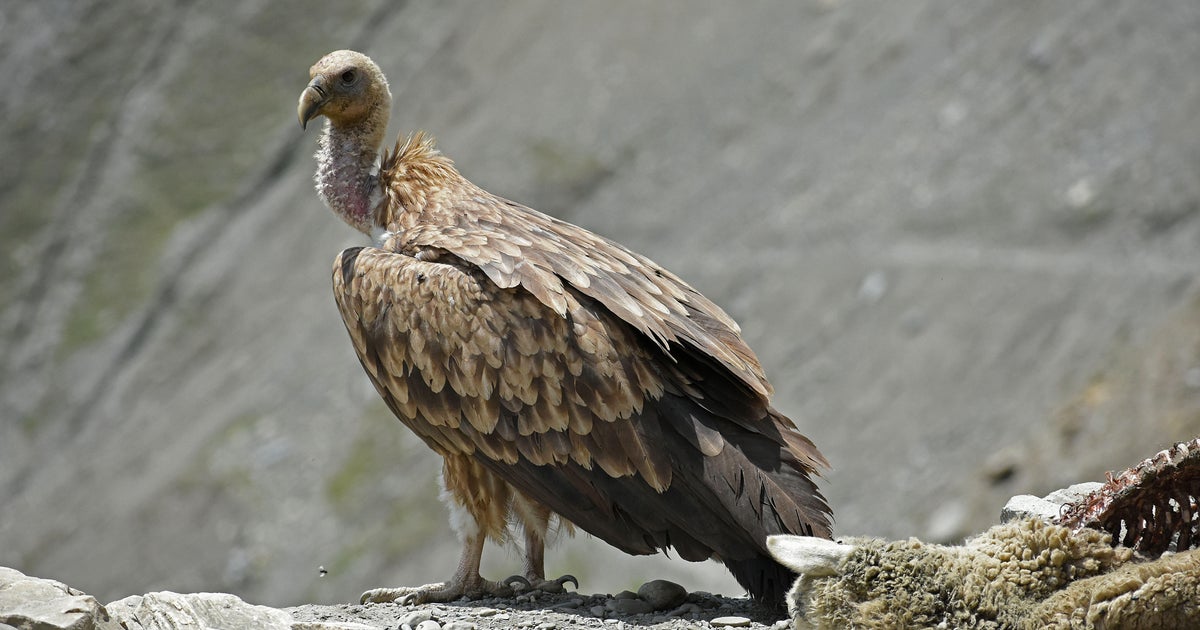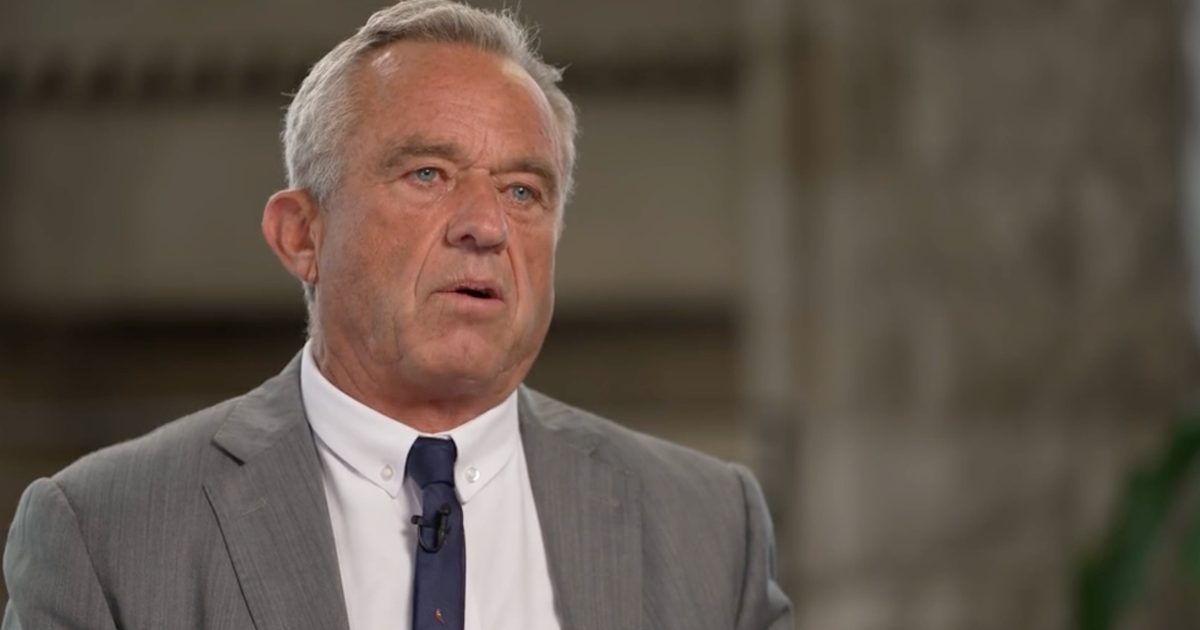India's election: What you should know as the world's biggest democracy votes
New Delhi -- Voting began Thursday in India, the world's biggest democracy, to pick the next central government. The world's second most populous nation is a key economic and security ally of the U.S., and the outcome of the elections will have a major impact on stability in the region, and possibly on New Delhi's ties with Washington.
The election is being watched closely by every major world power, with a focus on India's massive and growing economy, unemployment, and renewed tension with India's neighbor and fellow nuclear weapons state, Pakistan.
Below are some of the key points that make India's exercise in democracy so interesting, and important
It's huge - Here are some numbers
India is predicted to surpass China as the world's most populous country within three years. A baby is born every second in India. The current population is 1.34 billion people, compared to China's 1.39 billion.
The number of eligible voters (citizens over 18 years of age) in this election is the highest ever at 900 million. That's about four-times the number of eligible voters in the U.S., and roughly 10 percent of the world population.
Holding an election for such a huge population is a massive challenge and is done in phases. The votes will be cast in seven rounds in this election, pertaining to different areas, with the first beginning on April 11 and the last on May 19. Results won't be declared until May 23.
One million polling stations have been set up across the country.
An estimated $5 billion was spent by political parties and candidates in the last Indian general elections in 2014, according to the New Delhi-based Centre for Media Studies. They said the figure would likely be more than $7 billion this year.
What the elections determine
The elections are for the Indian public to choose lawmakers to represent them in the lower house of India's parliament, called the Lok Sabha ("House of the people" in Hindi). They are elected for five-year terms.
There are 543 elected seats in the Lok Sabha. Any party that wins at least 272 seats in the house has the right to form the next national government; to nominate the prime minister and fill the cabinet.
If no one party wins that many seats, the biggest vote-getting party can try to build a coalition with other parties to form a government.
The key battle: Modi vs. Gandhi
Current Prime Minister Narendra Modi won a massive mandate in the last elections in 2014. His Bharatiya Janata Party (BJP), won 282 seats alone. The BJP's party alliances added another 54 seats, giving the governing National Democratic Alliance (NDA) a huge 336 majority in the lower house of parliament - the best election performance by any group in three decades.
Modi, the face of his party, has campaigned hard across India to get out the vote for BJP in regional and local elections since the 2014 win, and now he's seeking hoping for second term as prime minister.
His main challenger is Rahul Gandhi, the president of the Indian National Congress party (INC). Gandhi's party was reduced to just 44 seats in the 2014 elections, the worst performance in its history and a major blow to the party that has governed the country for 49 of its 72 years of independence from Britain.
There have been recent state election victories for INC, however, and many analysts have predicted a possible comeback this year, even if it can't win a majority.
Security in a nuclear neighborhood
"India being a key ally of the U.S., Washington will be closely monitoring the polls," Michael Kugelman, Deputy Director of the Asia Program and Senior Associate for South Asia at The Wilson Center, a Washington-based think-tank, told CBS News. "India shares U.S. concerns about regional terrorism and China's rise."
Washington views India as a major Asian power that, as it develops, can help to offset the simultaneous rise and growing influence of China. It is a role that Kugelman believes to be stronger than relationships between individual leaders.
"The U.S.-India relationship is unlikely to be altered in a big way by the election outcome, whatever it may be," he said.
But the election outcome could have a major impact on peace and stability in the region -- something the U.S. does have a vested interest in. India is going through a renewed period of military tension with Pakistan. The neighbors have fought three major wars since 1947 over Kashmir, a Himalayan mountain region divided between them but claimed by both.
Modi has fostered a tough-on-Pakistan strongman image in recent months, and if he secures a second term it could mean continued clashes between the nuclear-armed neighbors.
The Trump administration intervened to bring the two sides back from the brink of a war in late February after they traded airstrikes, but cross-border clashes haven't stopped, and dozens of civilians have been killed since then.
Analysts believe Modi's tough stance on Pakistan will likely help win him votes.
The opposition, however, has accused him of conducting the airstrikes for political reasons, hoping to shift the pre-election narrative from development to security.
Other key election issues
India may be a growing economic power, but it still faces massive economic and social challenges. Demand for education and healthcare services, and new jobs is ever growing. India is the world's sixth largest economy, but is tipped to overtake the U.K. next year and move into number five. The growth rate, however, has slowed over the last decade, and unemployment has been on rise.
- Unemployment: Leaked government data earlier this year showed the worst unemployment levels in four decades, with nearly 20 percent of young Indians unable to find jobs. The opposition has attacked Modi for failing to deliver on promised job creation numbers.
- Poverty: Millions of Indians still live below the international poverty line, and millions still lack access to basic necessities like clean drinking water. Farmers have been committing suicide due to debt and falling crop prices.
- Pollution: Seven of the world's 10 most polluted cities are in India, according to the latest data released by IQAir, AirVisual and Greenpeace.
- Women's safety: The security of women in India has proven a huge challenge. India has a dismal record of violence against women, and rape. Government data showed that, on average, more than 100 women were raped every day in the country in 2016.
These issues, however, seem to have taken a back burner to security and terrorism amid the tension with Pakistan.
India's fake news problem
Thanks to cheap smartphones and dirt-cheap mobile data, India is a nation online. That has made social media platforms like Facebook, Twitter and Instagram, and messaging services like Whatsapp, popular targets for exploitation by political parties and their shadowy backers online.
Facebook alone has 300 million users in India, Whatsapp has 200 million. Fake news designed to benefit a particular party is often pushed through these mediums.
"There is no way India's Election Commission, with just 300 staff members, can monitor and combat disinformation on social media platforms," Syed Nazakat, founder of DataLEADS, a digital media company that works with the Google News Initiative to fight fake news in India, told CBS News. "Politicians know voters on social media platforms can be influenced with targeted campaigns."
Nazakat is part of the Google initiative to train thousands of journalists in India on tools to help debunk fake content online.
Key races to watch
Uttar Pradesh, with a population of over 200 million, is the most populous state in India. It sends a total of 80 members to the Lok Sabha.
Traditionally, the party that wins the most seats in Uttar Pradesh ends up forming the central government. Modi's BJP won 71 of the 80 seats in the state in the last election in 2014.
Along with Uttar Pradesh, Maharashtra (48 seats), Bihar (38 seats), and West Bengal (41 seats) are the other key states. Together they have a combined population of half a billion people.
Modi's BJP was polling strong in three of the four states ahead of the voting.






